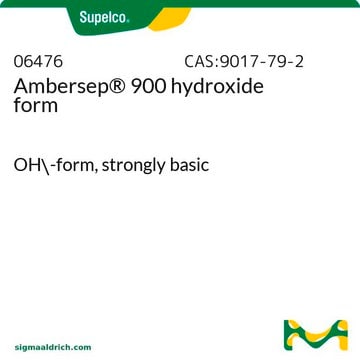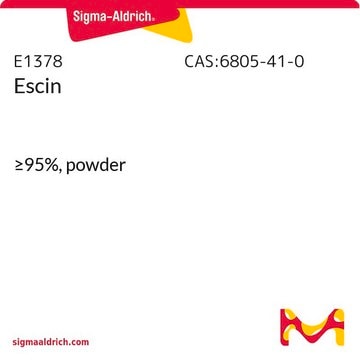27393
1,4-Cineole
analytical standard
Synonym(s):
1-Isopropyl-4-methyl-7-oxabicyclo[2.2.1]heptane
About This Item
Recommended Products
grade
analytical standard
Quality Level
Assay
≥98.5% (GC)
shelf life
limited shelf life, expiry date on the label
technique(s)
HPLC: suitable
gas chromatography (GC): suitable
refractive index
n20/D 1.445 (lit.)
n20/D 1.445
bp
65 °C/16 mmHg (lit.)
mp
−46 °C (lit.)
density
0.887 g/mL at 25 °C (lit.)
application(s)
cleaning products
cosmetics
flavors and fragrances
food and beverages
personal care
format
neat
SMILES string
CC(C)C12CCC(C)(CC1)O2
InChI
1S/C10H18O/c1-8(2)10-6-4-9(3,11-10)5-7-10/h8H,4-7H2,1-3H3/t9-,10+
InChI key
RFFOTVCVTJUTAD-AOOOYVTPSA-N
Looking for similar products? Visit Product Comparison Guide
Application
Recommended products
Signal Word
Warning
Hazard Statements
Precautionary Statements
Hazard Classifications
Flam. Liq. 3
Storage Class Code
3 - Flammable liquids
WGK
WGK 2
Flash Point(F)
116.6 °F - closed cup
Flash Point(C)
47 °C - closed cup
Personal Protective Equipment
Choose from one of the most recent versions:
Already Own This Product?
Find documentation for the products that you have recently purchased in the Document Library.
Customers Also Viewed
Our team of scientists has experience in all areas of research including Life Science, Material Science, Chemical Synthesis, Chromatography, Analytical and many others.
Contact Technical Service








